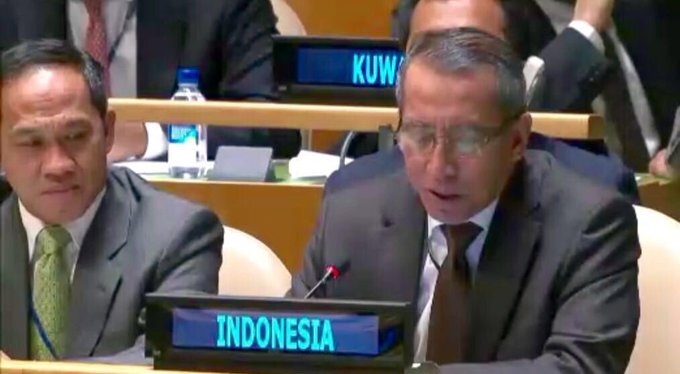UN Security Council president dismisses U.S. sanctions move on Iran

The president of the UN Security Council, Indonesia, said on Tuesday it was "not in the position to take further action" on a U.S. bid to trigger a return of all UN sanctions on Iran because there is no consensus in the 15-member body, The New York Times reported.
Thirteen council members expressed their opposition on Friday, arguing that Washington's move is void given it is using a process agreed under a 2015 nuclear deal between Iran and world powers that it quit two years ago.
Indonesia's UN Ambassador Dian Triansyah Djani, council president for August, was responding to a question from Russia and China on the issue during a meeting on the Middle East.
U.S. Ambassador Kelly Craft hit back after Djani spoke.
"Let me just make it really, really clear: the Trump administration has no fear in standing in limited company on this matter," she told the council. "I only regret that other members of this council have lost their way and now find themselves standing in the company of (what she called) terrorists."
The move by the Security Council is a legal and diplomatic victory not only for Iran but also for the international community as a whole. The response is a big no to violation of international law.
U.S. Secretary of State Mike Pompeo said he triggered on Thursday a 30-day process to reimpose all international sanctions on Iran by lodging a complaint with the council accusing Iran of breaching the 2015 nuclear deal.
Russia's UN Ambassador Vassily Nebenzia said he hoped the United States would now drop its bid to snapback Iran sanctions, "which is not only illegal, but simply will not lead to achieving the result that was envisaged by the United States."
Nebenzia's deputy Dmitry Polyanskiy summed up the Indonesian assessment in a Twitter post: "It means, there is NO SNAPBACK."
A spokesperson for the U.S. mission to the United Nations said it "is on firm legal ground to initiate the restoration of sanctions" and "the fact that some council members expressed disagreement .... does not have any legal effect."
The United States argues that it can trigger the process - known as snapback - because a 2015 Security Council resolution that enshrines the nuclear deal still names it as a participant.
The Security Council resoundingly rejected a U.S. attempt on Aug. 14 to extend an arms embargo on Iran beyond its expiration in October. Only the Dominican Republic joined Washington in voting yes.
Leave a Comment